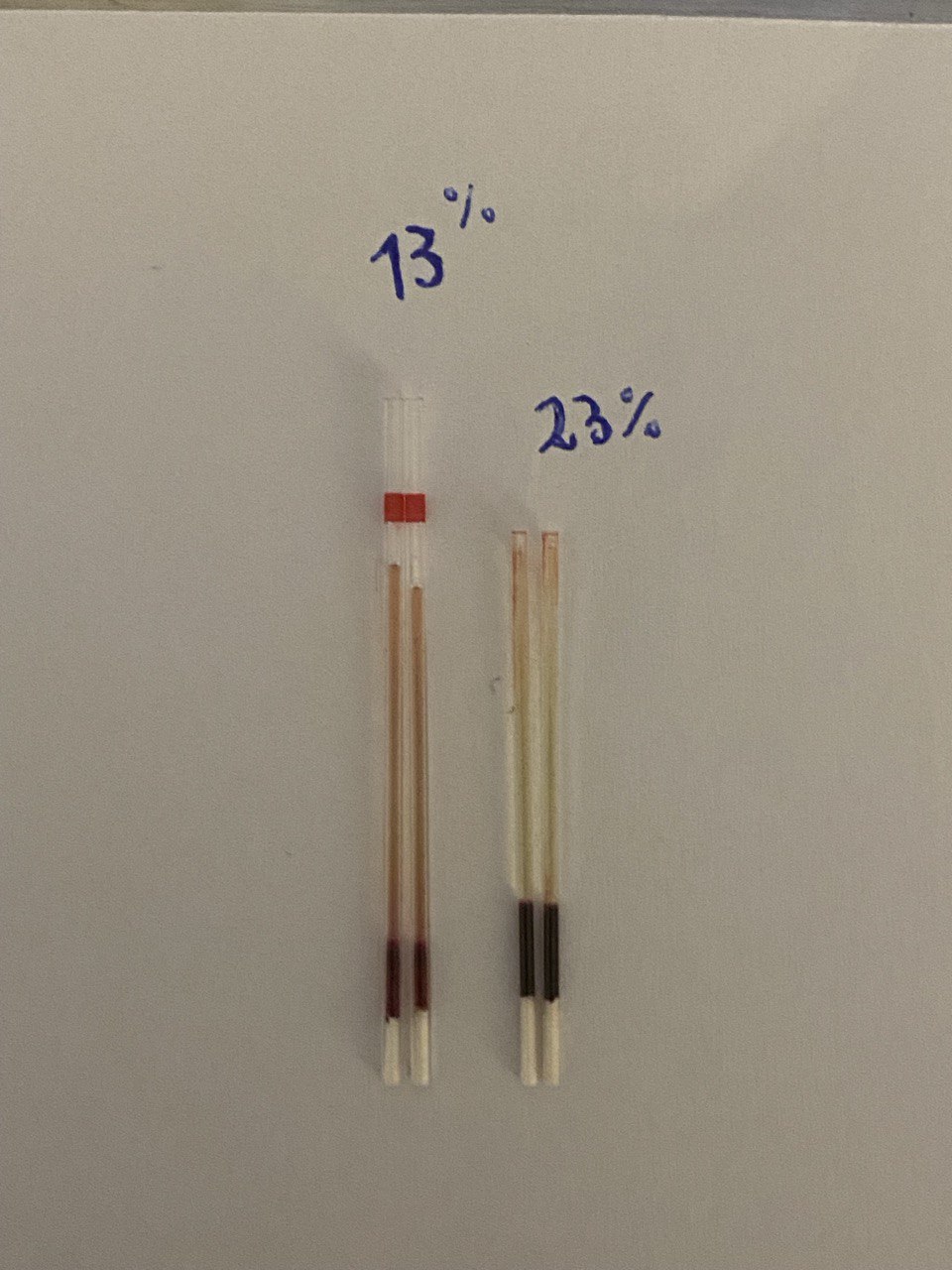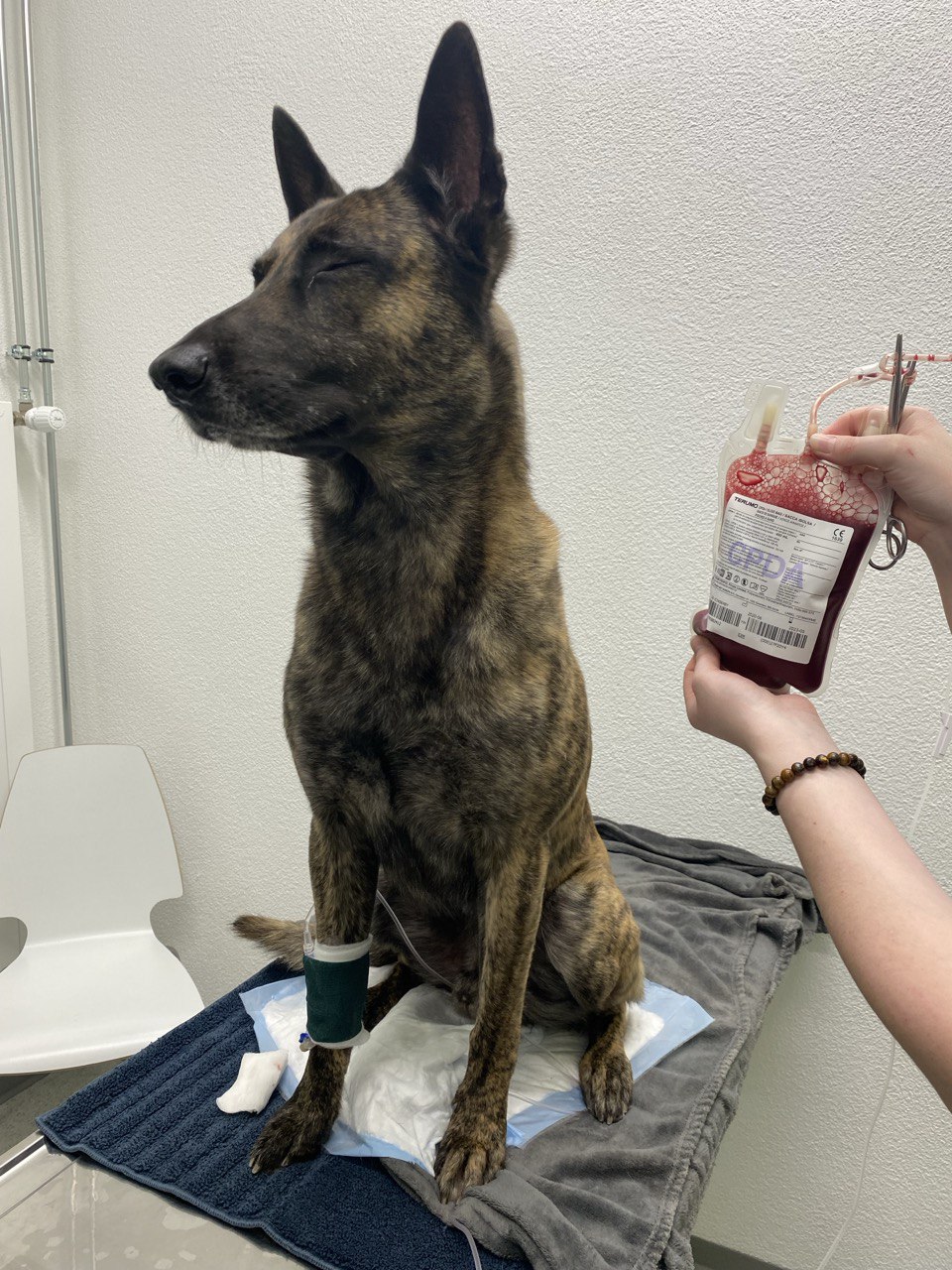Unfortunately, our pets also sometimes end up in situations where they urgently depend on a blood donation. Causes can include:
severe blood loss after an accident or surgery
- severe blood loss after an accident or surgery
- infectious diseases
- blood clotting disorders
- poisonings
- tumors
- or certain chronic conditions
In all of these cases, a timely blood donation can mean the difference between life and death.
How do you benefit from a blood donation?
By registering your pet on our blood donor list, you benefit from:
- 50% discount on the annual standard vaccination
- Free blood typing
- Free complete blood count and biochemical profile with every donation
- Free screening tests with every donation:
- Cats: FeLV (leukemia) and FIV (feline AIDS)
- Dogs: Heartworm as well as various tick-borne diseases (ehrlichiosis, babesiosis, anaplasmosis)
Who is allowed to donate blood?
Eligibility criteria for dogs
- Healthy, friendly, and cooperative
- Weight: at least 20 kg
- Age: 1–10 years
- No signs of infectious diseases, no heart murmur
- Vaccinated and regularly dewormed
- No medications (except worm/tick/flea prevention)
- No serious pre-existing conditions
- No previous blood transfusion
- For international travel: current negative leishmaniasis test
Eligibility criteria for cats
- Healthy, friendly, and cooperative
- Indoor-only cat
- Weight: at least 3 kg
- Age: 1–10 years
- No signs of infectious diseases, no heart murmur
- Vaccinated and regularly dewormed
- No medications (except worm/tick/flea prevention)
- No serious pre-existing conditions
- No previous blood transfusion
How does a blood donation work?
When a donor is needed, we will contact you by phone and arrange an appointment depending on the urgency. Before each donation, your pet will be thoroughly examined. In addition, we carry out a complete blood count and a biochemical profile – completely free of charge for you.
- Dogs: For cooperative dogs, sedation is usually not necessary. During the donation, your dog should lie calmly on its side for about 10 minutes – you can practice this at home beforehand.
- Cats: For cats, a short sedation or anesthesia is usually required.
A small area on the neck is shaved, disinfected, and then blood is drawn. After the blood donation, we recommend avoiding major exertion for 24 hours. Your pet will receive a tasty meal and, if necessary, additional fluids for balance.
What are your obligations?:
- Willingness to donate in case of emergency (maximum every 3 months)
- Informing our veterinarians of any changes in health status
- Ensuring a species-appropriate diet and clean environment
- Regular deworming (every 3 months) and ectoparasite treatment (depending on the product)
- Annual vaccination
- Consent to the performance of necessary blood tests
How does my pet become a blood donor?
If you would like to register your pet, simply fill out our registration form. As part of an initial consultation, we will check together whether your pet meets all the requirements and determine the blood type so that we can act quickly in an emergency. If your pet meets the criteria, we will add it to our blood donor list.
If you have any questions or would like more information, please feel free to contact us or schedule a consultation at our clinic.



.svg)
.svg)



.svg)

.png)
.png)



